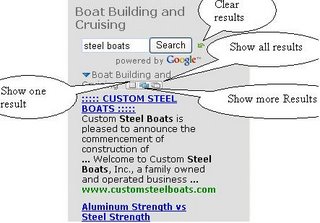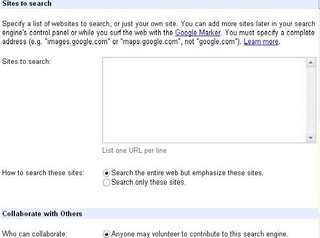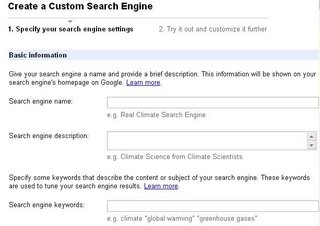Prologue (this is hopefully a technical article and not a story)
The times are changing as they always do…People are too lazy to use the search box, be it the search box in a search engine (no search engines have a long life ahead of them) or a specific site. Thus, the need for alternatives have driven people to make lot of unique and interesting ways of linking up data. In this post I hope to review all these methods. --end of prologue
Problems with the Search box.The search box became popular due to the flexibility it offered, the user had the capacity to give a query he liked. But this seems to be a problem as well. How—
- The user has to know what to type into the search box---for example if you were searching for the “pictures” of a palace (to use as a background-so any palace would do). The user could try words as diverse as “Palace pictures”, “Palace images”, “Palace photos” and the search results you would get would be as diverse as these -Palace pictures Palace images Palace photos Although all these queries mean nearly the same thing for a layman like me, they do have a subtle difference. This difference is based on context.
- Auto fill(google toolbar) –this seems to be a good problem solver. If you type a particular query once you can use it again without having to remember it. But again the results are not related to context. So the problem is lack of context sensitive results. What i mean is--you get a result about computer viruses when you search for "virus". This should seem rather annoying for a biologist.Not that any biologist would search for 'virus' alone. He would give a more apporpriate query like "XYZ disease causing virus". Yes, so, what is "appropriate"? It is relative to context. Context seems to be the problem. Enough of defining the problem--lets see some results.
Google Earth
"Offers maps and satellite images for complex or pinpointed regional searches."--So the context here seems to be specific to a region. If you were trying to find a shop near you that sells "high sucrose content milk", you just go to your region in the map and find one. You can personalise your search to a particular region.
Smart Tags and Auto link
Although both these methods of providing context specific links at the browser were proclaimed evil, they seem to be the first attempt at providing Context specifc linking.Smart tags was introduced by Microsoft in Internet explorer. Auot link comes with the google toolbar. These tools will provide links to sites of their choice from the words that appear in a particular page. The main problem was that the publisher of that particular site would not in any way get any benefits, and he was inadverdently driving traffic to other sites.
Grease Monkey
The "grease monkey" is firefox extension that allows its users to choose a module which can be used to link words appearing on its site to other sites. The advantage with this tool is that the user can decide which kind of sites get linked.The main drawback is that if you need to share your list of sites, you generally have to transfer a file.
Monkey Grease
This is a server side alternative, in which the publisher of the site gets to choose which sites to link to. The program will then link words and links "appropriately". But most of these auto linking methods seem to be one sided-either the publisher has full control or the user has full control.
Klogging (using the kloggenerator)
Its simply linking each word to a list of links. Each word appearing on the website is linked to a list of websites about that topic. Both the publisher and the users of that web site can add or remove web sites from that list.
So the use of the search box is on the decline. You generally use a serch box when you find a new word in a site and it does not have a link. If all the words on all the web sites and blogs were linked to appropriate sites or lists of sites, the chances of your using a search box are very small. The klog tool also provides a method to link to multiple words together as well using NHTML. However, every time you come across something new, like a new car--how would you find it??--no you would not use the search box--You would log into your account (tagging service account) and click on the tag "Car". This brings up a list of sites about cars--in these sites, you would try to find your new car brand. Your tagged sites are more likely to provide you with content related to your context than a search box.
The future
The virtual worlds seems to hold the key to the internet of tommorow. A world linked together, we move from one virtual world house(site) to another.We talk to people through virtual characters, send e-mails through virtual post boxes, buy goods in virtual money... the possibilities seem limitless. The Death of the search box is the death of the 2 dimensional web. The idea of having to view the entire web through a browser window is loosing ground. The search engines need to provide a virtual world alternative to the search box. The most likely alternative i can think of is a "wise old man". A bot that can answer the questions of all those who want answers. How well the AI grows around us is the quesion.







